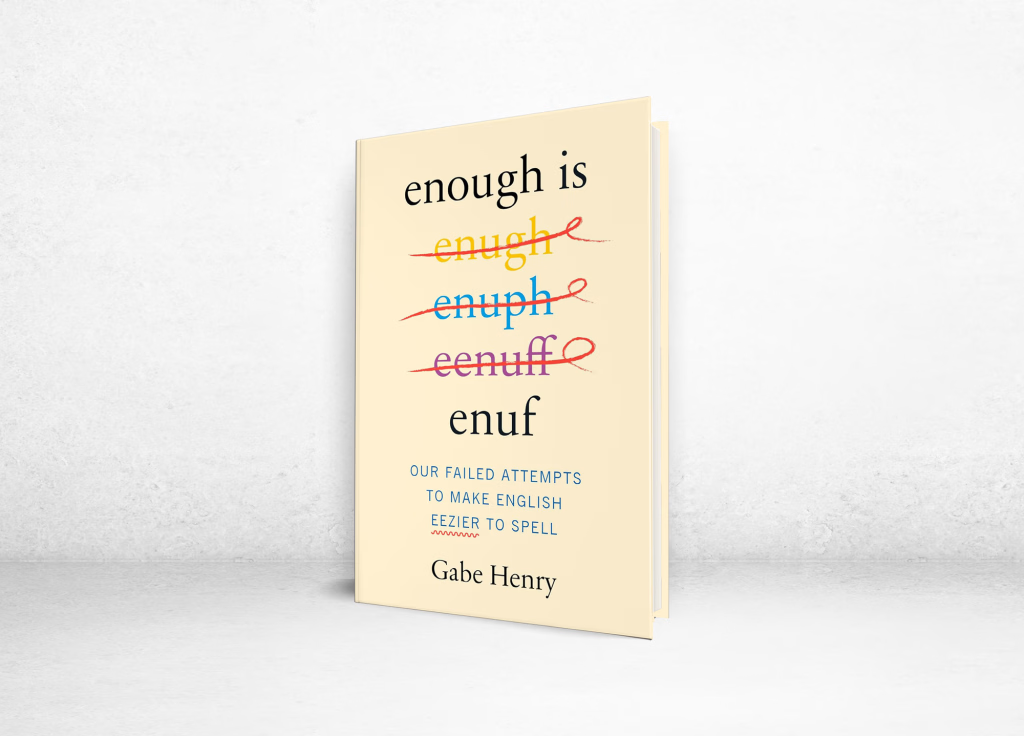
Long before Noah Webster completed his 1828 magnum opus, “An American Dictionary of the English Language,” he published a wildly successful primer called “A Grammatical Institute of the English Language”—widely known as the “Blue-Backed Speller”—which sold close to 25 million copies in his lifetime. The spelling primer’s first edition conformed to traditional English orthography, with, for instance, entries for “theatre,” “publick” and “colour.”
After the publication of the “Blue-Backed Speller” in 1783, however, Webster became increasingly committed to an American dialect that would be distinct from British English. His dictionary had an explicitly patriotic agenda: to unite the language of the regionally diverse United States and to declare its independence from the former motherland. In addition to such Americanisms as “moccasin” and “cookies,” Webster featured updated spellings of a number of words, including “theater,” “public” and “color.”
As Gabe Henry notes in “Enough Is Enuf,” a history of the largely futile efforts to overhaul English spelling, Webster wasn’t motivated by nationalism alone. He had also become an adherent of wholesale changes to written English, lamenting its “irregular” orthography. “If a gradual reform should not be made in our language,” the lexicographer warned in 1790, “it wil proov that we are less under the influence of reezon than our ancestors.” A quick glance at that sentence is sufficient to grasp that not all of Webster’s hoped-for modifications caught on.
Mr. Henry begins his smart, lighthearted chronicle of the simplified spelling movement by identifying the “heart of our problem”: that “English has 44 sounds but only 26 letters” and that each sound has, “on average, four ways of spelling it.” (He offers “cat,” “kid,” “chrome” and “queen” as examples of the latter.) Over the centuries, reformers have proposed solutions—including adding new letters to the alphabet, removing existing letters from the alphabet and inventing different alphabets altogether—to little avail.
It’s fitting that our guide through this history is a humorist. (Mr. Henry previously edited 2022’s “Eating Salad Drunk,” a collection of haikus he solicited from comedians including Jerry Seinfeld, Margaret Cho, Ray Romano and others.) For one thing, simplified spelling looks funny, a fact that 19th-century writers such as Josh Billings, Artemus Ward and Petroleum Vesuvius Nasby deftly exploited. “I attrybute my suksess in life to mi devoshun to spelyng,” Billings once wrote.
“Enough Is Enuf” also finds humor in how deadly serious some notable figures were about spelling reform—and how overzealous they sometimes became. Melvil Dewey, the creator of the Dewey Decimal System, was born “Melville,” but his commitment to spelling reform started with his own name. Dewey was a leader in the Spelling Reform Association, founded in 1876 in Philadelphia; its sister association in England boasted Charles Darwin and Alfred, Lord Tennyson as vice presidents. As if to justify the organization’s existence, its members kept adding letters and diacritics to their proposed alphabet, rendering it increasingly incomprehensible. By 1882 the group was calling itself Dhi Speling Reform Asoshiēshun.
In the early 20th century, the industrialist Andrew Carnegie provided the seed money for the Simplified Spelling Board, which, unlike the Spelling Reform Association, was committed to subtracting letters from the alphabet rather than adding them. (His wish list included “thru,” “tho” and “lookt.”) In 1906 President Theodore Roosevelt ordered the federal government to conform to the spellings advocated by the board, and the press, Mr. Henry reports, had “a field day.” (The book reproduces several political cartoons mocking Roosevelt’s action.) In response, Congress voted to maintain standard orthography, and an embarrassed TR, whom some reporters had begun calling “Ruzevelt,” abandoned the cause. Meanwhile, after fruitlessly bankrolling the project for years to the tune of $200,000 (the equivalent of over $6.3 million today), Carnegie bitterly wrote of his board that “a more useless body of men never came into association.” He fumed, in his preferred orthography, “I think I hav been patient long enuf.”
Mr. Henry cites George Bernard Shaw and Upton Sinclair as among the prominent writers who expressed inordinate passion on the topic of spelling reform. Shaw, who described his play “Pygmalion” (1913) as “an advertisement of the science of phonetics” and who supported the construction of a new alphabet, contended that “the waste of war is negligible in comparison to the daily waste of trying to communicate with one another in English.” Sinclair, in a 1962 letter urging John F. Kennedy to reform American orthography, assured the president that doing so “will immortalize your name as much as if you had written the Declaration of Independence.” Can you spell “hyperbole”?
Hundreds of footnotes attest to the fact that the author has done his research, but Mr. Henry’s primary purpose is to entertain. He breezes through the history of the English language in 10 pages, devoting a half-page apiece to the Celts, the Romans, the Anglo-Saxons and the Norse. And he only touches upon interesting overlaps between simplified spelling and other social-reform movements. He mentions that, in the Civil War era, it wasn’t uncommon for abolitionists to be spelling reformers; they regarded simplified spelling as the most efficient way to educate formerly enslaved men and women who’d been barred from literacy. The author also briefly profiles Eliza Burnz (originally Burns), who taught a version of Isaac Pitman’s shorthand method in New York in the late 19th century. As stenography became an overwhelmingly female profession, Burnz saw both shorthand and the campaign for suffrage as tools to liberate women.
The final section of “Enough Is Enuf” brings simplified spelling into the current age, covering advertising, digital technology and even the pop songwriting of Prince. Of course, texting and social media have streamlined the way we communicate, gratifying the remaining die-hard spelling reformers even as traditionalists lament the rise of “GR8,” “pls,” “thx” and the like. Mr. Henry, for his part, is untroubled by text-speak, and he argues that Noah Webster would be too. After all, it has spread in the bottom-up way that languages usually evolve. As the father of the American dictionary once sagely observed, “it is quite impossible to stop the progress of language.”
